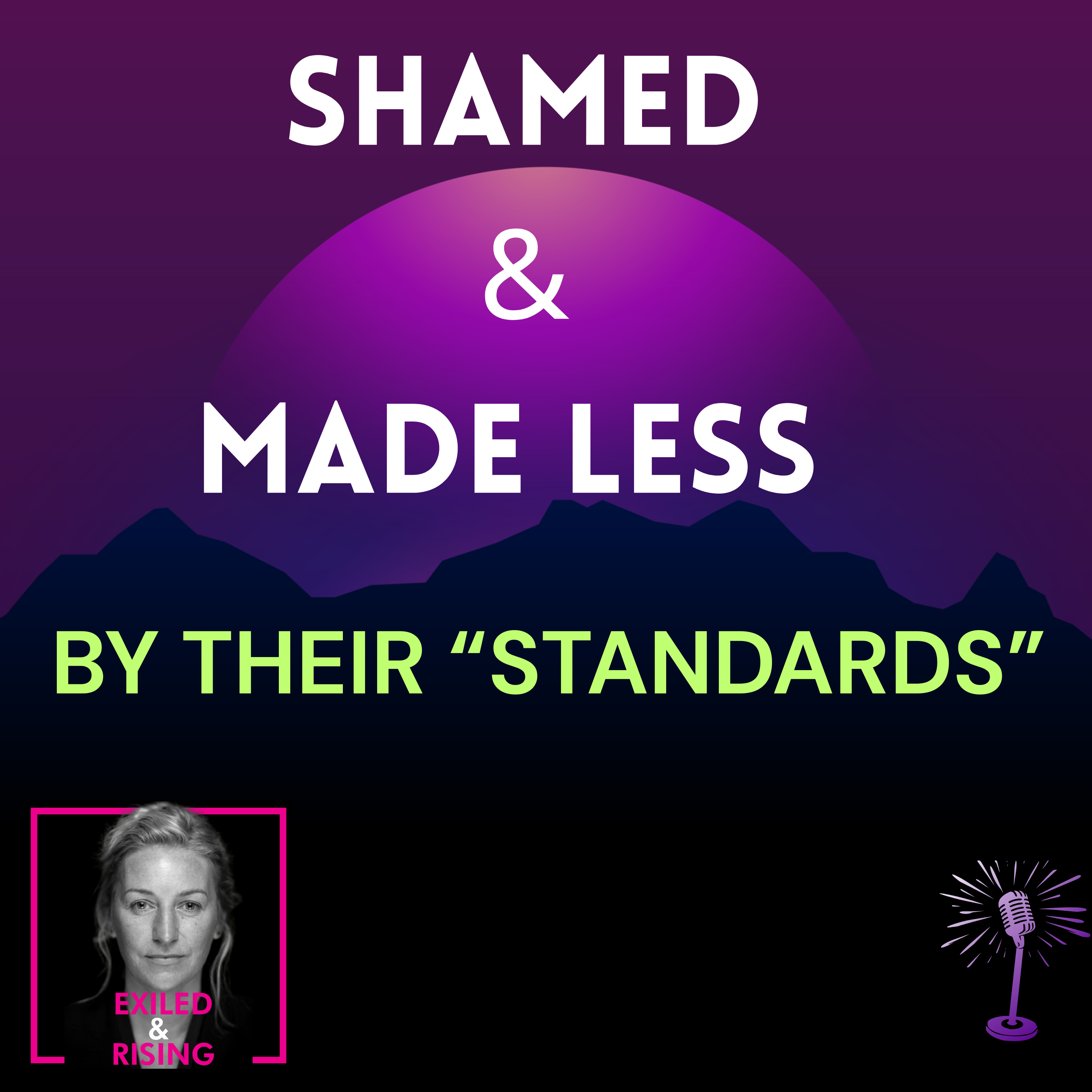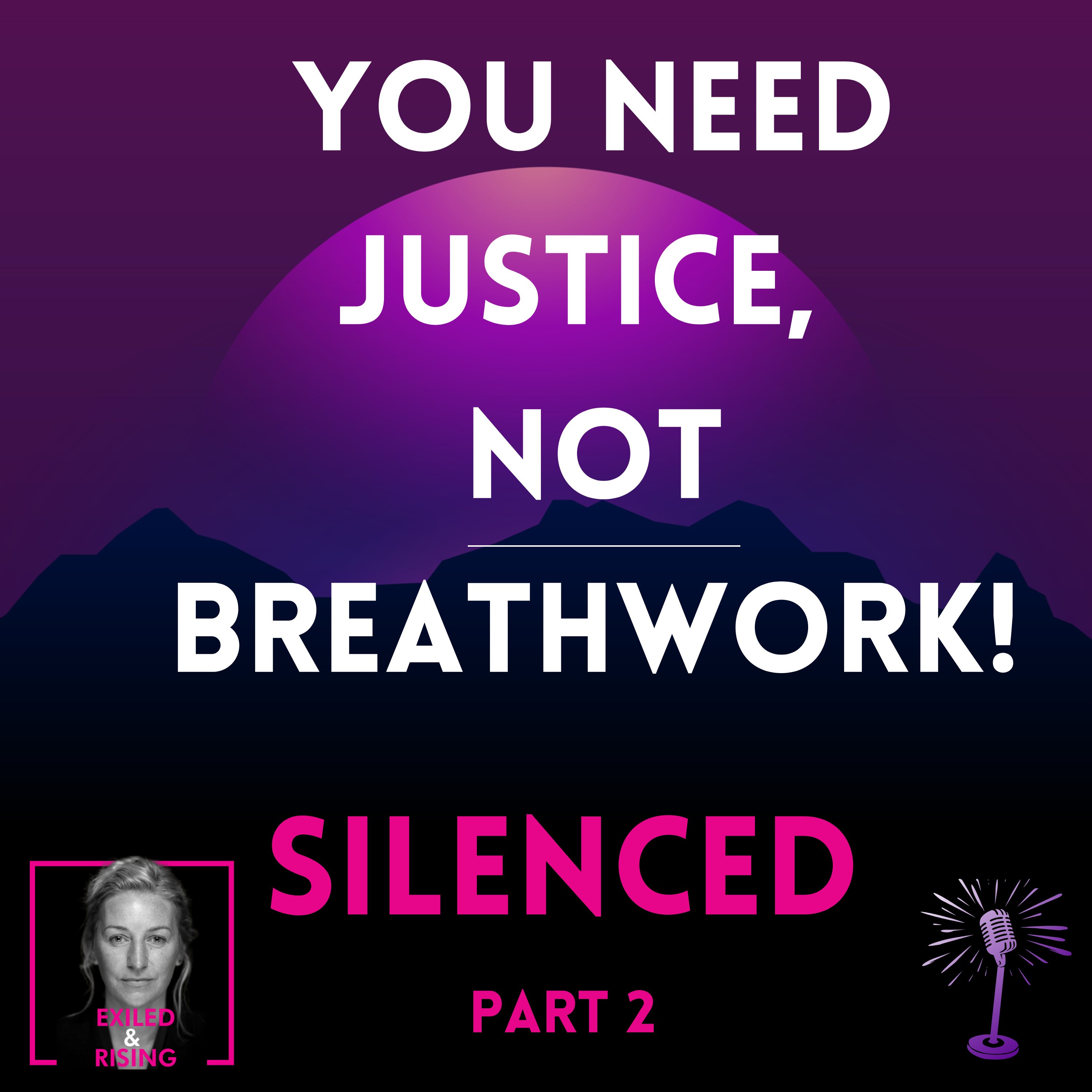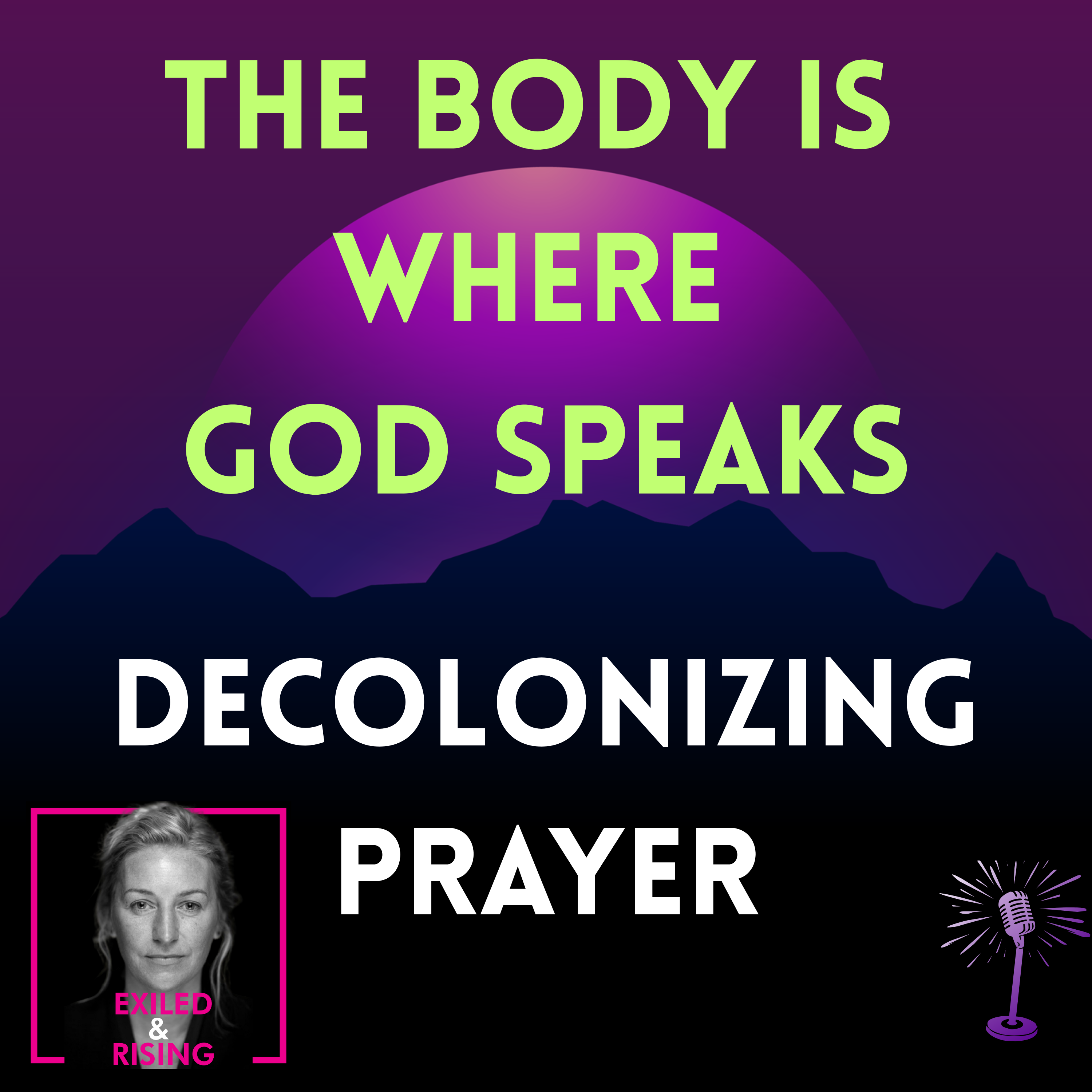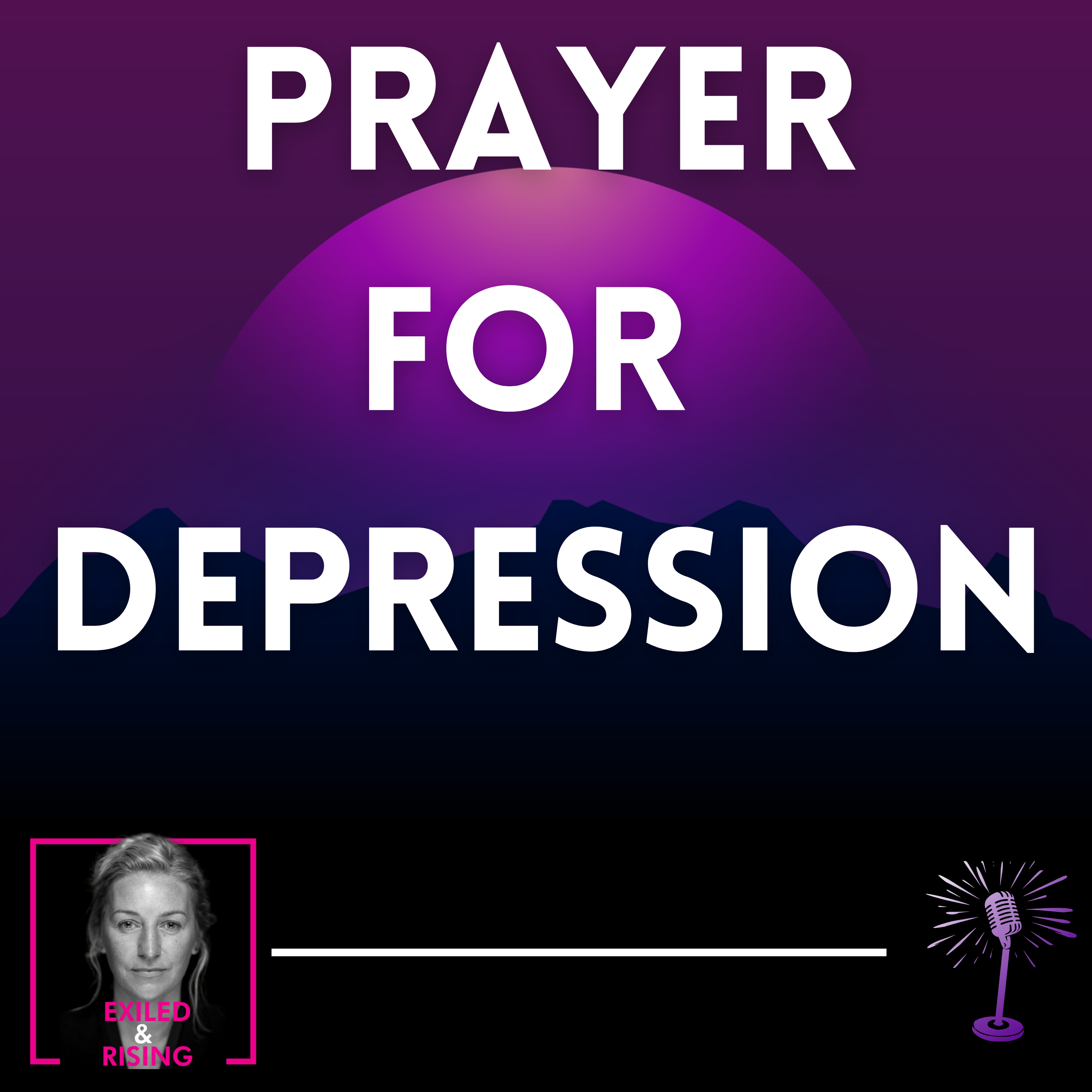Show Notes
Ana dismantles the myth that shame is self-generated. She frames shame as something imposed from the outside—by abusers, toxic environments, and systems of oppression—and then internalized by the survivor.
Buy Book: The Trauma We Don't Talk About https://amzn.to/41SjKKL
Want to go deeper? Check the link below for Ana’s somatic course on healing intimacy and learning to safely open, receive, and trust again.
https://exiledandrising.mykajabi.com/offers/zchSQWb5
Please Donate:
https://donate.stripe.com/3cI9AS5Xfb9W6O832VfEk00
What Ana is teaching
-
Shame is given, not born. Toxic shame is injected by abusers, family systems, and oppressive environments; it is not an innate trait.
-
Internalization mechanics. External blame becomes an inner narrative → self-blame → perfectionism and rigid self-discipline as defenses against future shame.
-
Belonging injury. Given shame creates a chronic felt sense of “I don’t belong / something is wrong with me,” even when no wrongdoing occurred.
-
Identity-level harm. The wound targets core identity (ethnicity, language, body, neurotype, citizenship, gender, orientation) and becomes somatically encoded.
-
A pathway out. Reframe shame as given, name the source, return the burden, cultivate self-love somatically, and ritualize belonging and dignity.
The Shame Triad: Given • Not Belonging • Detonation
1. Shame Is Given
-
Shame is not born in you — it is injected by abusers, family systems, or oppressive cultures.
-
What feels like an internal flaw is actually an external projection you learned to carry.
-
Teaching line: “Shame is not yours. It was handed to you, and what is given can also be returned.”
2. Shame as Not Belonging
-
Toxic shame convinces you that you don’t deserve to exist, to be safe, or to belong.
-
It’s not about what you’ve done, but who you are — your ethnicity, body, language, or identity.
-
Teaching line: “Shame is the wound of belonging — the lie that says you don’t deserve to take up space.”
3. Shame as Detonation
-
Shame acts like an explosion in the psyche, fragmenting identity and safety.
-
Just as war detonation destroys a home, toxic shame detonates the inner home where self-worth and belonging should live.
-
Teaching line: “Shame detonates the inner home — but what was destroyed can be rebuilt with dignity and love.”
What Ana is conveying
-
Validation: If you feel defective without a reason, you’re likely carrying someone else’s shame.
-
Agency + hope: You can hand back what was never yours and restore safety, belonging, and love in your system.
-
Justice, not appeasement: Healing is both personal and political—resisting cultures that label certain lives “too costly.”
Her look & lens (how she sees the problem)
-
Somatic lens: The body “remembers” shame on/under the skin; regulation and interoception are central to repair.
-
Developmental/attachment lens: The wound forms early and shapes adult patterns (hyper-vigilance, self-erasure, perfectionism).
-
Systems/justice lens: Family harm is amplified by cultural narratives (racism, xenophobia, ableism, classism, patriarchy, productivity culture).
-
Ritual/ancestral lens: Dignity and belonging can be re-anchored through personal ritual, ancestral connection (blood or chosen), and moral compass.
What Ana brings & offers
-
Lived experience of ethnic profiling and displacement, grounding the teaching beyond abstraction.
-
A clear five-part framework (reframe → name the source → return the burden → learn self-love → ritualize belonging).
-
Concrete micro-practices (gentle self-touch, spoken permission, micro-steps to receive kindness).
-
Guided learning (course/workshop on “Shame Is Given,” somatic lessons; episode references on justice vs. “just breathwork”).
Key takeaways (quick-scan)
-
You weren’t born ashamed; it was put on you.
-
Perfectionism often protects against re-shaming, not a love of “perfect.”
-
The most fundamental needs robbed were safety → belonging → love (in that order).
-
Shame sticks to identity and skin—especially for those systemically othered.
-
Returning the burden is an act of self-respect and social resistance.
-
Self-love is learnable and practiced somatically; kindness received (not just given) rewires the story.
Distilled lessons
-
Reframe: “This shame was given to me.”
-
Source: Name the person/system/environment that projected it.
-
Return: Mentally/ritually hand back the shame; it is not yours.
-
Re-mother/Re-father the self: Practice somatic safety and self-kindness daily.
-
Ritualize belonging: Root identity in dignity, ancestors/chosen kin, and values; act from your moral compass.
Therapeutic teachings (actionable skills & concepts)
-
Somatic permissioning: Gentle self-touch + phrase (“I hear you. I see you. It’s not yours.”) to down-shift shame arousal.
-
Perfectionism reframe: See rigid self-discipline as a protective strategy; thank it, then soften it with graded exposure to “good-enough.”
-
Receiving practice: Accept one small kindness daily without apology or repayment (10–30 seconds of simply letting it land).
-
Identity re-anchoring: Write a “claims of dignity” list (ethnicity, language, body, neurotype, orientation, citizenship) → pair each with a pride/ritual act.
-
Burden-return ritual: Brief visualization or written letter naming the source(s), returning what was given, reclaiming space on/under the skin.
-
Justice micro-acts: Align behavior with values (boundary, vote, donate, speak up, mutual aid) to counter the “too costly” narrative.
Main quotes
-
“Shame is not inherent. It is thrown at you and dumped into your system.”
-
“You didn’t begin life as a baby who felt shame.”
-
“Perfectionism is born not from love of perfect but to avoid shame being thrown again.”
-
“If you had been given love, safety, and care, you would never feel toxic shame.”
-
“This is their shame and their burden to carry.”
-
“Your innate being always had the right to be loved and cared for.”
-
“In self-love and kindness, shame melts away and self-worth rises.”
-
“Healing this is a pathway of safety → belonging → love.”
About Ana Mael:
Ana Mael is a somatic therapist, and author of The Trauma We Don’t Talk About. She is the founder of the Somatic Trauma Recovery Center and has dedicated her career to helping survivors reclaim their identity, dignity, and self-trust. With decades of lived experience, Ana offers a unique, unapologetic approach to healing that combines trauma justice, somatic therapy, and spiritual integrity. She advocates for vulnerability, accountability, and collective healing to dismantle the systems that perpetuate oppression and harm.
Chapters
- (00:00:01) - The Shame That Was Forced Into Me
- (00:12:15) - You need justice for the wronged
- (00:18:59) - How to Free Yourself from Shame
- (00:22:11) - Shame and its path out



